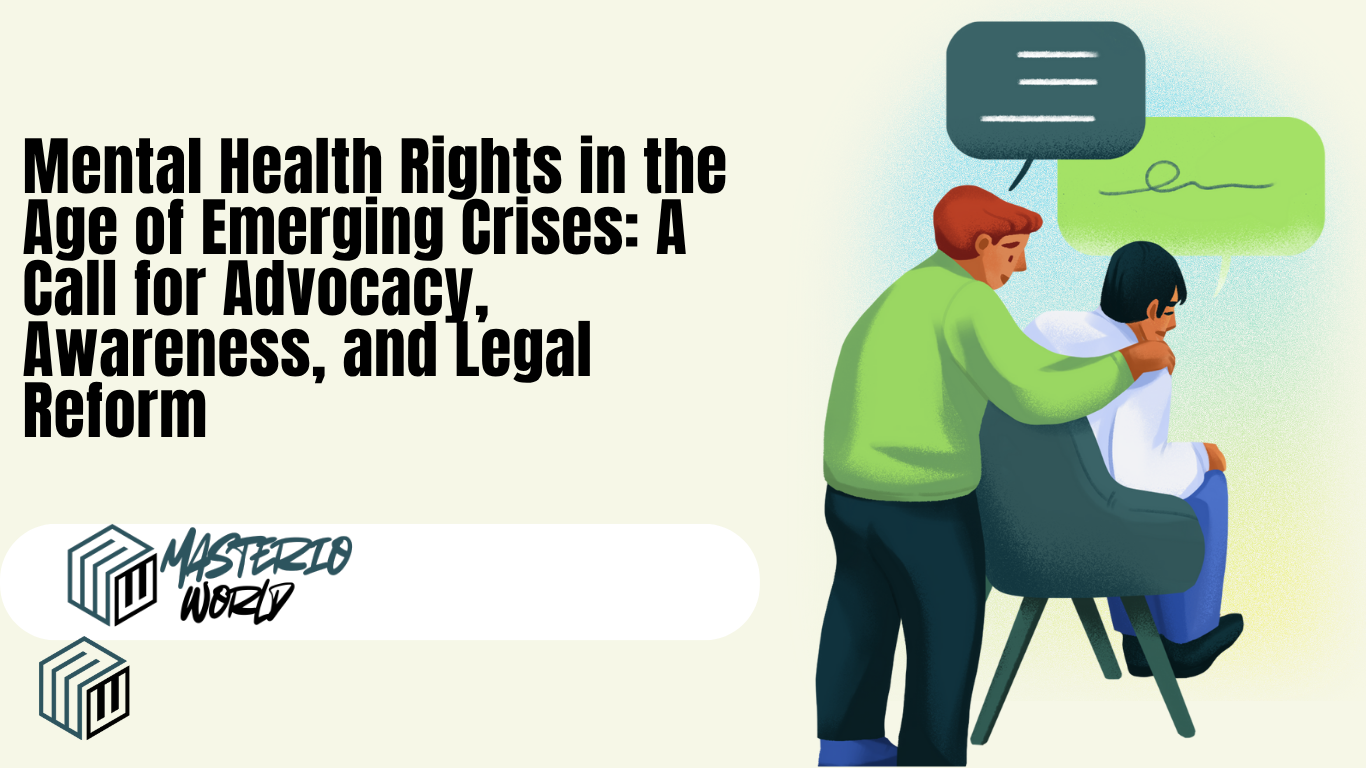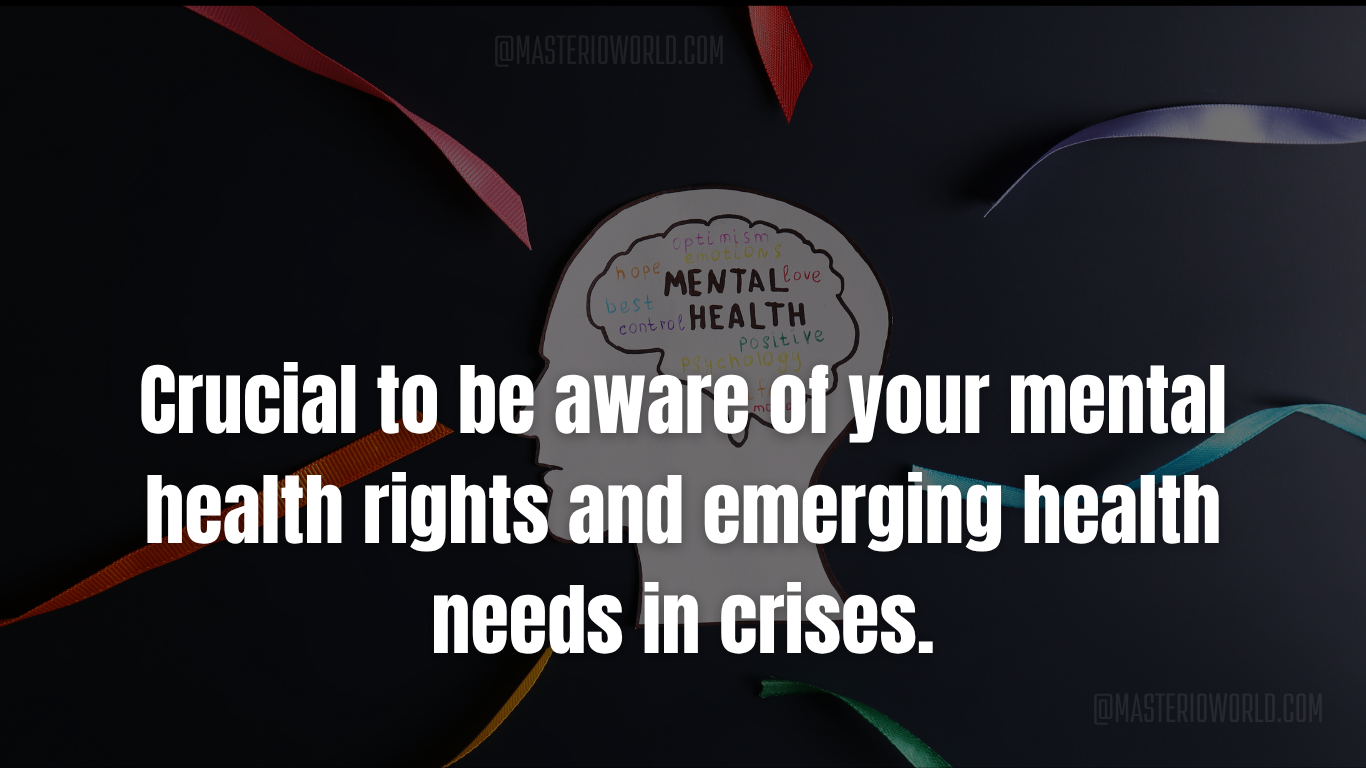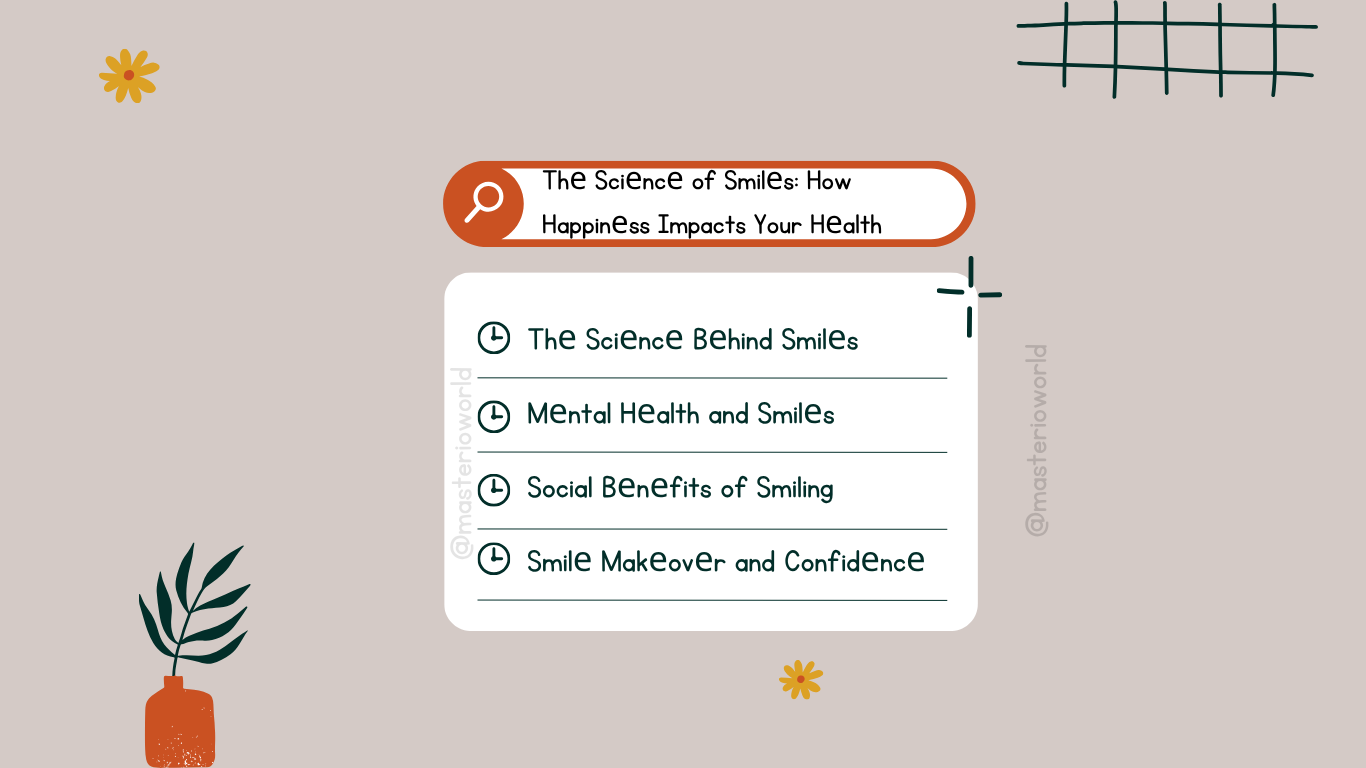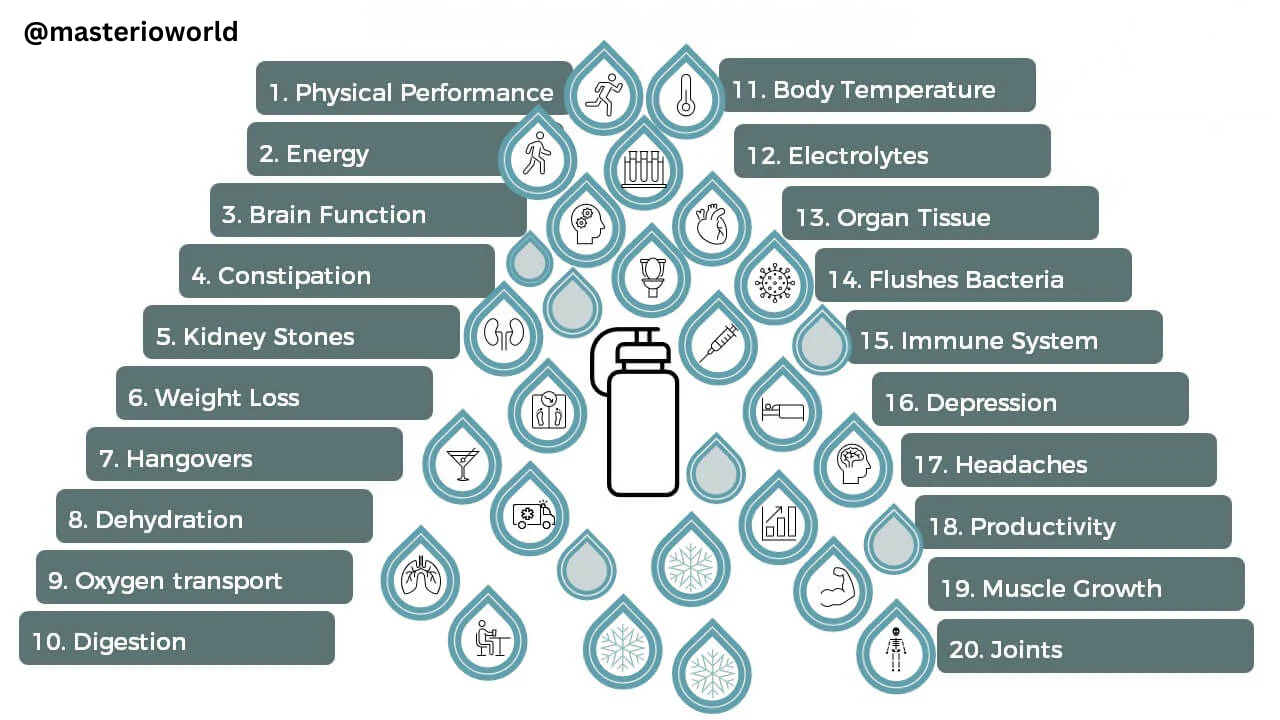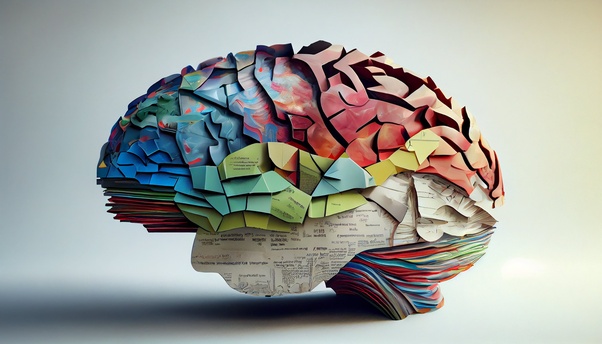In a world that’s changing faster than we can keep up with—filled with global pandemics, armed conflicts, climate disasters, and economic turmoil—it’s becoming clear that the health needs of individuals are increasingly leaning towards the psychological. We can no longer afford to treat mental health as an afterthought. It deserves the same level of attention and resources as physical health, especially when it comes to managing crises.
Even though many countries claim to offer universal health coverage, the rights surrounding mental health often remain vague, inconsistent, or poorly enforced. These rights aren’t just nice-to-haves; they are fundamental human rights. Yet, millions of people still face discrimination, misdiagnosis, forced institutionalization, and stigma, often without any legal protection. It’s time to break this silence. We need to redefine, strengthen, and universalize mental health advocacy.
________________________________________
The Unseen Crisis: Emerging Health Needs Beyond Infection and Injury
In the past, crises were often defined by their visible impacts: bloodshed, disease outbreaks, or the collapse of infrastructure. But today, we’re grappling with a parallel epidemic—one that revolves around emotional and psychological trauma. The health challenges of the 21st century extend beyond new viruses or chronic illnesses; they encompass climate anxiety, digital burnout, social isolation, and the mental toll of living in disaster-stricken areas.
Take, for instance:
- After Hurricane Maria struck Puerto Rico in 2017, there was a significant spike in suicide rates in the months that followed.
- In conflict zones like Gaza, PTSD is more prevalent than access to safe drinking water.
- During the COVID-19 lockdowns, young people around the world reported unprecedented levels of depression and anxiety, particularly in underserved communities.
These examples reveal a crucial reality: mental health isn’t a luxury; it’s the bedrock of resilience.
________________________________________
What Are Mental Health Rights?
Many people think that mental health rights are just about getting access to treatment. But there’s so much more to it:
- The right to dignity: Everyone deserves to be treated with respect, regardless of their mental health status.
- The right to informed consent: No one should be medicated, hospitalized, or restrained without fully understanding what’s happening and giving their consent.
- The right to community-based care: Mental health shouldn’t mean being stuck in an institution.
- The right to privacy: Your mental health records should be kept safe and secure under data protection laws.
- The right to equal opportunity: Those with mental health challenges should have the same chances in employment, housing, and education as anyone else.
These rights should be something we can enforce, not just wishful thinking. Sadly, in many places, mental health laws are either outdated or non-existent.
________________________________________
Why Mental Health Advocacy Must Evolve
Mental health advocacy often focuses on raising awareness, but awareness alone without legal action is just for show. It’s time to go beyond catchy slogans and take action in courtrooms, parliaments, and emergency response plans.
Redefining Advocacy:
- Legal Advocacy: Pushing for mental health to be recognized as a fundamental right in the constitution.
- Medical Advocacy: Holding healthcare institutions accountable for any discriminatory practices.
- Crisis Advocacy: Making sure mental health first aid is a standard part of all emergency response efforts.
- Workplace Advocacy: Ensuring that employers take responsibility for creating a psychologically safe work environment.
Real systemic change starts at the crossroads of legal protections for mental health patients and active advocacy.
________________________________________
Mental Health in Crisis: The Forgotten Frontline
In every major humanitarian crisis, there’s a group that often gets overlooked—those who are mentally injured, not just physically harmed. Yet, even today, emergency response teams frequently lack the essential training needed to provide mental health support.
Just picture this:
- A refugee mother escaping war loses her child and receives no trauma support.
- A disaster survivor starts having suicidal thoughts and is simply told to “stay strong.”
- A teenager, isolated during a lockdown, attempts self-harm and is brushed off as just seeking attention.
In all these scenarios, mental health during crises is treated as an afterthought—often because there’s no legal obligation for systems to respond. This has to change.
Steps Toward Change:
- Integrate mental health professionals into emergency response teams.
- Establish mobile mental health units for disaster-stricken areas.
- Fund tele-mental health services that can be accessed via SMS or offline apps.
- Require psychological safety audits after a crisis.
________________________________________
Legal Protections for Mental Health Patients: Where We Stand
Here’s a tough pill to swallow: even in developed nations, the legal protections for mental health patients are falling short compared to those for other health issues.
Think about it:
- Involuntary commitment laws in the U.S. permit indefinite detention without a trial.
- Many insurance plans lack mental health coverage, especially in low-income countries.
- Patients in psychiatric facilities often face overmedication and insufficient supervision.
- Behaviors linked to mental health, like homelessness and substance use, are criminalized.
What We Need:
- Global treaties similar to the UN Convention on the Rights of Persons with Disabilities (CRPD), but focused specifically on mental health.
- Domestic legal reforms that hold mental health violations accountable in court.
- Independent mental health ombudsman offices in every healthcare system.
________________________________________
Why Mental Health Rights Matter Globally
We can’t tackle today’s biggest issues—like conflict, displacement, addiction, suicide, and violence—without putting mental health front and center. Whether we’re talking about schools, refugee camps, prisons, or workplaces, it’s crucial that rights come before treatment.
Mental health rights aren’t just another piece of the healthcare puzzle. They’re fundamental to our survival, peace, and dignity as human beings.
________________________________________
Conclusion: From Compassion to Constitution
In the next decade, we need mental health advocacy to evolve from simple pamphlets to solid policies, from nonprofit initiatives to national laws, and from quiet conversations in therapy rooms to powerful voices in courtrooms.
Just raising awareness about mental health isn’t enough; we need to back it up with proper infrastructure, accountability, and enforcement of rights. It’s time to move past mere compassion and push for constitutional inclusion, ensuring that everyone is legally entitled to the mental care, respect, and dignity they deserve, especially during tough times.
________________________________________
Frequently Asked Questions (FAQs)
Mental health rights are the legal and moral protections for individuals with mental health conditions. These rights include access to quality care, living free from stigma and discrimination, informed consent, privacy, and the ability to participate in community life without fear of being marginalized or abused.
During crises like natural disasters, pandemics, wars, or economic downturns, mental health can take a serious hit. Addressing mental health in these situations ensures that those affected are not only safe physically but also emotionally supported, which helps reduce long-term trauma and build resilience.
Today, we’re seeing some new mental health challenges that really need our attention, such as:
- Anxiety related to climate change
- Burnout from excessive screen time
- Trauma stemming from the pandemic
- Rising rates of depression and suicide among young people
- Mental exhaustion caused by social and economic uncertainty
To tackle these issues, we need to revamp our support systems, particularly for those in underserved and vulnerable communities.
When it comes to advocating for mental health, it’s about more than just raising awareness. It involves:
- Pushing for better mental health laws
- Making sure mental health services are part of schools and workplaces
- Training first responders to provide psychological first aid
- Challenging stigma in the media and healthcare settings
Legal protections for mental health patients can vary by country, but they often include:
- Rights against being treated involuntarily
- Laws that prevent discrimination in the workplace
- Confidentiality for medical records
- Access to disability benefits
That said, these laws can be incomplete or not enforced well. International guidelines like the UN CRPD provide a framework, but we need stronger implementation at the national level.
Crisis management teams should:
- Bring in trained mental health professionals
- Provide psychological first aid along with physical care
- Create safe spaces for those affected by trauma
- Offer referrals for ongoing therapy
This kind of approach can significantly help in reducing PTSD, suicide rates, and long-term psychological harm.
It’s a shared responsibility among various groups:
- Governments need to create and enforce laws that protect these rights.
- Healthcare providers should deliver treatment that is both ethical and respectful.
- Employers have a duty to promote mental wellness in their workplaces.
- Communities must work to eliminate stigma and provide support systems.
Schools and workplaces are often the first places where signs of mental distress show up. Their responsibilities include:
- Offering access to counseling services
- Fostering a safe and inclusive atmosphere
- Implementing time-off policies for mental health needs
- Training staff to identify and respond to signs of distress
- Familiarize yourself with your legal rights in your country or state.
- Ask for accommodations at work or school under disability laws.
- Keep a record of your medical interactions and advocate for informed consent.
Get involved with or support advocacy organizations that strive for systemic change
Absolutely. The World Health Organization (WHO) and the United Nations (UN) recognize mental health as a crucial aspect of the right to health. Everyone deserves access to mental health care that is available, acceptable, and free from discrimination.

